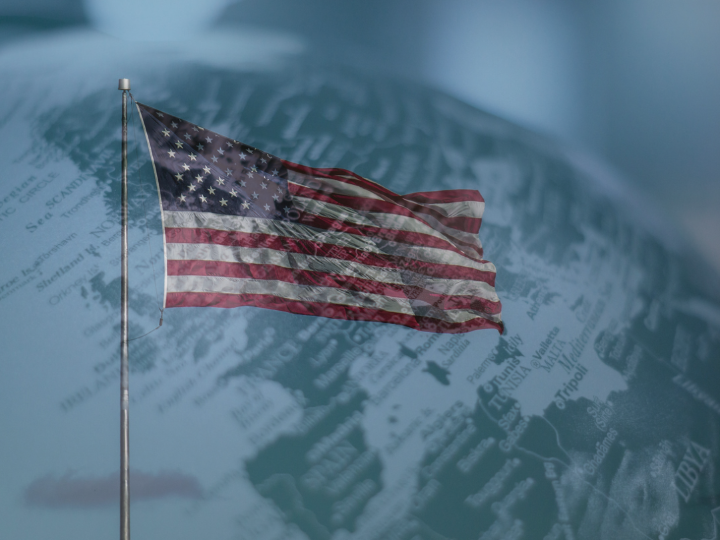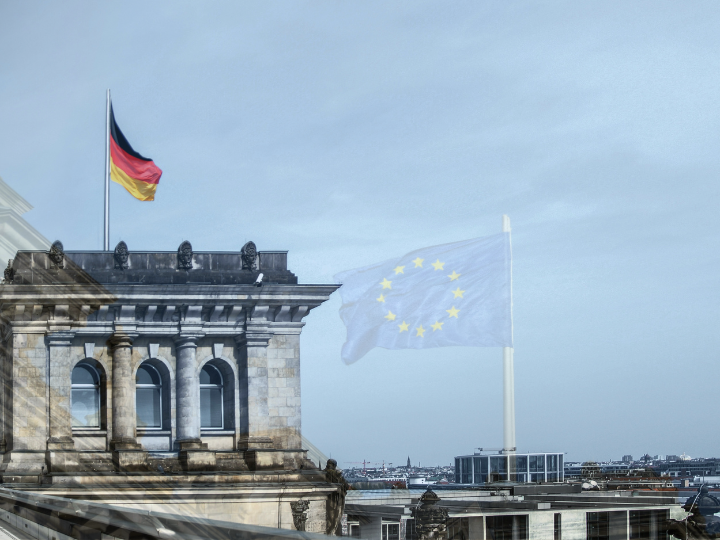by Alexandra Brzozowski
Europeans want to make sure they have a seat at the table in any future Ukraine peace talks, but they run the risk of getting only a folding chair.
Almost three years after Russia’s invasion of Ukraine and with US President-elect Donald Trump taking office in just a week, Europeans face the question of how they could make sure not to be excluded from potential peace talks this year.
Russia currently controls about one-fifth of Ukraine’s territory, but Kyiv hopes its unexpected capture and hold of Kursk could boost its negotiating position as they gear up for talks. Both sides have been striving to improve their battlefield positions before the new Trump administration takes office on 20 January.
Kyiv’s leadership fears that a quick ceasefire or peace deal, as repeatedly teased by Trump and his entourage, could come at a high price. Ukraine’s President Volodymyr Zelenskyy so far rejected any swift turn to the negotiation table.
The vast majority of EU leaders – with the exception of Hungary and Slovakia – agree that there is no point pushing Zelenskyy to talk while Russia’s President Vladimir Putin has so far not signalled he would be willing to.
They are also confident it would be "almost impossible" for Trump to exclude Europe from Ukraine decisions, Estonia’s Prime Minister Kristen Michal told Euractiv in a recent interview.
"The US must help us to change the nature of the situation and convince Russia to come to the negotiating table," French President Emmanuel Macron told French ambassadors in the Elysee Palace last week.
"The Ukrainians need to hold realistic discussions on territorial issues, and only they can lead them; Europeans need to build security guarantees, which will be their primary responsibility," he added.
Count-down to Trump
A key worry among EU diplomats is a scenario where Trump would be inclined to hold bilateral talks with Putin over the heads of Europeans.
Ukrainian officials, over the past few months, have ramped up their messaging on Trump’s vital role, rarely openly criticising him for comments, in an attempt to make sure they would at least sit at the table.
Zelenskyy used a recent three-hour US podcast interview to explain Kyiv’s vision of possible peace negotiations, attributing a key vital role to Trump in forcing Russia to end its war.
"Without the US, security guarantees are not possible," Zelenskyy said, echoing an earlier line he used after an EU summit in December on the need for Ukraine’s NATO membership as a security guarantee.
After his election in November, Trump had signalled to both Zelenskyy and Macron that it would be Europeans’ responsibility to oversee and secure a future Ukraine ceasefire, according to officials who were briefed on the conversations.
But Trump’s incoming Ukraine envoy, Keith Kellogg, who was expected to travel to Kyiv and several other European capitals in early January, has postponed a fact-finding trip until after the inauguration on 20 January.
EU diplomats said it was a first good signal that Trump earlier this week seemed to move away from his initial target of putting an end to the war in 24 hours by suggesting that “six months” was a more realistic target.
Kellogg shaved off two months of the president-elect’s latest Ukraine peace deal timeline, telling Fox News on Wednesday the new administration would look to broker a “solvable solution” within its 100 days in office.
Format of the talks
A key question will be what format future talks could take and who could sit at the table. EU diplomats say there are no concrete plans on paper yet.
That could start changing when EU foreign ministers meet for their first talks of the year on 27 January, after Trump’s inauguration, according to several EU diplomats.
Most EU leaders – but Russia-hawkish Eastern Europeans – have been clear they want to avoid a limited Minsk-style forum that would exclude a broad range of interests across the bloc.
EU’s chief diplomat, Kaja Kallas, said Thursday that "the EU is also ready to take over this leadership if the US is not willing to do so."
"I am really sure that all the other members, and hopefully also the US, are ready to continue with the support to Ukraine," Kallas said at the sideline of Ukraine defence talks at the Ramstein Air Base in Germany.
An earlier leaders’ level meeting of the format, planned for September and due to be chaired by US President Joe Biden, had been cancelled as Washington had to focus on disaster response to Hurricane Milton.
While Europeans have been insisting in contacts with Trump’s entourage that continued US military aid is needed to put Kyiv in a stronger negotiating position, EU diplomats say it remains unclear to them whether the format will continue under US leadership – or be forced to shift towards a European-led coalition.
Italy’s Prime Minister Giorgia Meloni, who met Trump at his Mar-a-Lago resort earlier this month, said she “would not foresee a US disengagement.”
“On peace, Trump may be someone who is moving forward towards a solution, but I do not think that means abandoning Ukraine,” she said.
In December, EU leaders had started testing the waters on potential coalition constellations, with European officials saying they expect such formats to continue over the next weeks and months as peace talks materialise.
With Germany heading towards snap elections and France domestically weak, Polish Prime Minister Donald Tusk is expected to play a key role in building a European coalition around support for Ukraine in the next six months of the country’s rotating EU presidency.
Warsaw is certain to be the exact opposite of its Hungarian predecessor in the job. Prime Minister Viktor Orban’s controversial solo diplomatic ’peace mission’ that led him to Moscow, Beijing and Mar-a-Lago has left a bad aftertaste that will be looming over any future talks.
But there are more seats that could possibly be filled.
"The EU should be present [as an institution] in future negotiations because it is one of the significant providers and coordinators of assistance to Ukraine," Dumoulin said.
"Whether other non-European actors should be there and whether it makes sense to have broader ownership of the process – with, for example, China, India or Brazil present – raises the possibility to end up producing outcomes that are less favourable to Ukraine," she cautioned.
Defining negotiation goals
"For the time being, Europeans should continue telling the US that forcing Ukrainians into a negotiation is a recipe for failure and will make the US appear weak if the outcome is more beneficial to Russia than it is to Ukraine and its Western partners," Marie Dumoulin, European Council of Foreign Relations’s (ECFR) director for Wider Europe, told Euractiv.
Europeans should make clear that it is in the interest of the US not to enter those negotiations with antagonised Europeans and Ukrainians but to have an actually united Western position, she said.
However, most EU diplomats and officials admit that a conversation about the need to decide what members they want to achieve from any kind of future talks has not really happened.
"It is not just being at the table that matters but about having an idea of why you are at this table and what you want to achieve through a negotiation," Dumoulin said.
*first published in: Euractiv.com




 By: N. Peter Kramer
By: N. Peter Kramer

